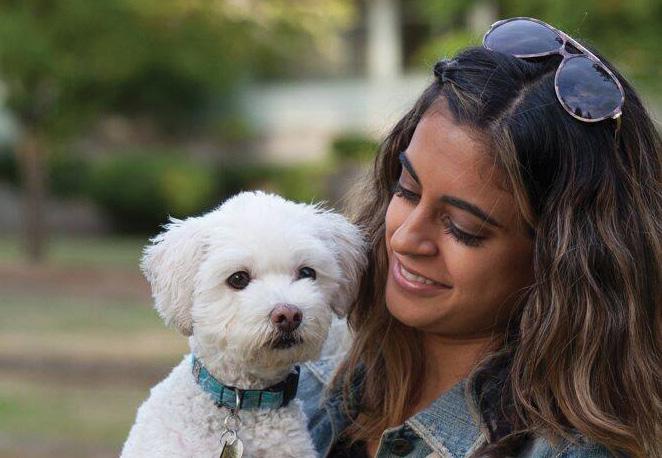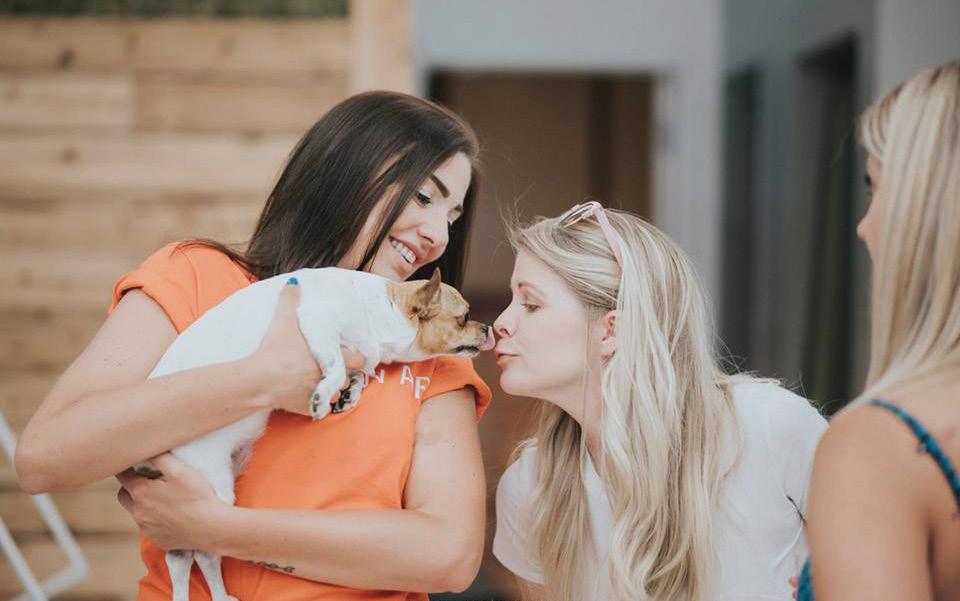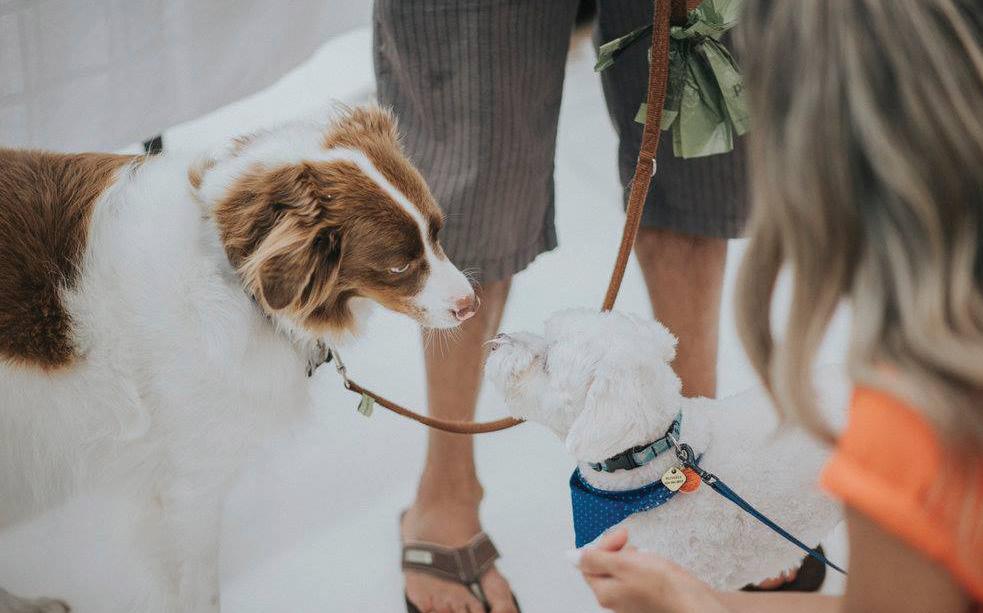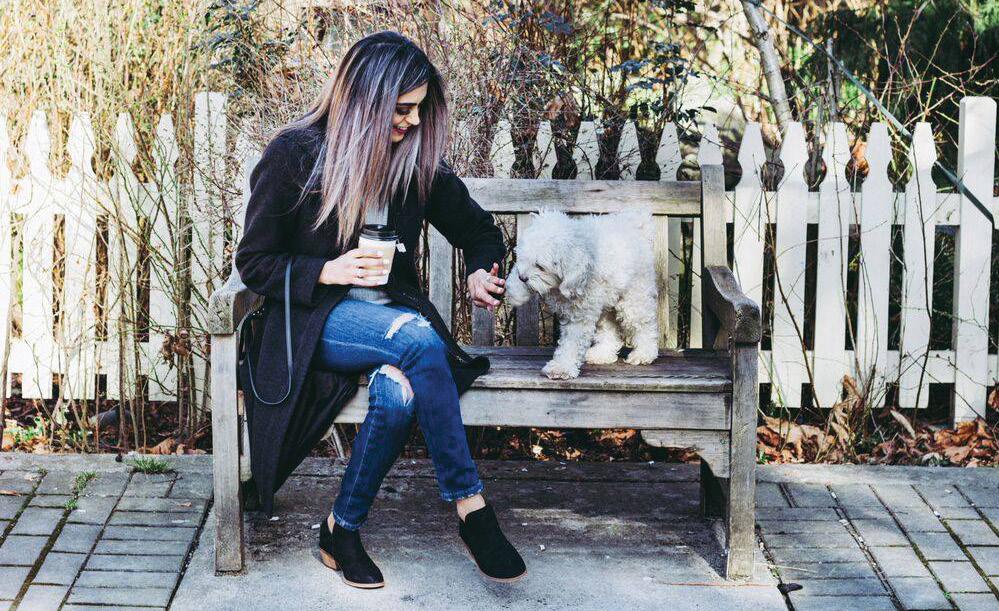
6 minute read
Aliya Bhatia
Class of 2010 Interviewed by Cam Henderson | August 2018
What could possibly make the GM of Hampton Suites in Vancouver leave her position to start a company aimed at creating a community for dog-owners? Aliya has had an array of experiences since her graduation from Mulgrave in 2004, but she took time to answer some questions about her new company PawSwap and explain why she left her high-level position to follow a dream.
What is PawSwap?
PawSwap is a platform that helps dog owners connect with other owners in their building, neighbourhood, and community to watch their four-legged best friends while they work or are on vacation in a safe, convenient, and completely free way. We have monthly meet-ups to help facilitate new friendships and a private Facebook group that our members use to swap pet sitting services. Our mission is to make owning and caring for a dog easier by harnessing the power of the sharing economy. We have been testing our concept while developing a native iOS application with additional features such as virtual treats to incorporate a pay-it-forward model, which we will begin beta testing for in September 2018 with our early adopters. Our goal is to launch in Vancouver by October 2018 and then expand in major cities across Canada and the US.
How did you first recognise there was a need for this service?


my dog with me. Not only did I feel extremely guilty on those days, but I realised the long-term damage that it could cause to my dog’s health. At the time, I couldn’t afford to spend $40 a day on traditional pet sitting, nor did I want to trouble my friends and family. So I created a Facebook group filled with dog owners who had similar pain points. From there, I started planning and executing dog meet-ups all over Vancouver, which not only helped dog owners meet neighbours that they could potentially swap with, but they also united the dog community as a whole. We started inviting vendors, trainers, and professional pet sitters to the meet-ups, which enabled us to really understand the market. The more I learned about the community, the more I realised that people needed a solution to make it easier to own and care for a dog, and the concept of PawSwap evolved to what it is today.
How often do you hold meetups?
Our goal is to host one meet-up a month. To be honest, the meet-ups have received a little bit of scrutiny with select members of the start-up community. Investors want to see that a platform is scalable (in this context, I mean that the business model has the potential for rapid economic growth), and meet-ups don’t really fit that typical mold. Our members, however, love the meet-ups as it aids in achieving the primary goal, which is to find new friends for your best friends. The meet-ups also act as a form of free marketing, so we are getting creative and finding ways that we can continue to offer them without compromising scalability. The next meet-up on September 30th for example, is in partnership with Dogs Of Vancity, so all we have to do is show up!
How would you measure success? (In terms of PawSwap? Your own life?)
You may value many things in life, but I believe it is important to know what your top two values are, and measure your success in comparison to those two values. My first is to leave a legacy, which means making a difference and leaving a footprint behind for others to follow and my second is to maintain balance. If I spent the majority of my week fulfilling both of these two values, then it was a successful week. And as Robert Collier put it, “success is the sum of small efforts – repeated day in and day out.”
At what point did you decide to leave Hampton to pursue PawSwap full time? What factors affected your decision?
I thought for a long time (over 2 years to be exact) that I could run the hotel while starting a new business. It was actually a mentor that changed my perspective on this. During our initial meeting, he asked me two questions: Where do I see myself in 10 years and what is currently not working in my business? After writing out my response for these two questions, I realised that I could never achieve what I wanted to achieve in 10 years while also working a full time job. If my actions on a daily basis did not align with where I saw myself in 10 years, then I needed to adjust what I was doing on a daily basis. That pushed me to make the change.

What was the biggest challenge starting your own businesses?
The biggest challenge was not knowing where to start, what to do next, and where to spend the majority of my time and money. I had this vision of solving a big problem, yet I was entering into unchartered territory that only a select few people knew how to be successful in. After two years of attending events, conducting online research, and talking to other founders and industry experts, I was able to come up with the plan that I’m currently in the process of executing. At this point, I haven’t even really ‘started’. I’m not interested in building a lifestyle app or business, I’m building a company with the ultimate goal of having millions of users. This is just the beginning.

What advice would you give to a new graduate interested in starting their own business?
Three words: Do. Your. Research. Whether you’re wanting to launch an app, run your own restaurant, or start a lifestyle brand, understanding what that actually entails before launching your business is essential. If I had known this in advance, the application would have been launched much sooner. I would break your research into 3 categories: 1. Industry and market research: Go online and learn everything you can about your industry and then about your specific target market. You may even want to put together a preliminary business plan.
2. Attend industry events: Not only is this a great way to meet people for step 3, but the speakers will help you get a pulse on best practices, trends, and industry standards.

3. Talk to leaders in your area of interest: Conduct informational interviews, and/or job shadow business owners/founders. These people could also eventually make up your board of advisors, so this step will be beneficial to your business at a later stage. Tap into your LinkedIn network and ask mutual connections to make an introduction. Come up with specific questions in advance and don’t just say “I want to pick your brain.” Their time is valuable and they usually want to make sure they are the right person to help you, and if not, they will likely refer you to someone who can help.
You may decide in the end that the industry isn’t for you, and that’s okay! It’s better to know this in advance versus launching a business based on your assumptions about a specific industry and/or idea. experiencing it, I see how real it really is. I would love to start a program me that provides aspiring female founders with the tools, resources, and connections that they need to succeed.
Where do you see yourself 5 years from now?
In five years, I hope to have helped other female entrepreneurs in male-diluted industries. Finding support is hard enough, but as a female there are so many additional barriers to entry that we face on a daily basis. I always heard and read stories from other female founders about these barriers, but now that I’m actually





